Psychology And Life 2nd Canadian Edition By Richard – Test Bank
Gerrig, Zimbardo, Desmarais, Ivanco – Psychology and Life, 2Ce
Chapter 3: Evolutionary Psychology
1) Nature is to nurture as heredity is to
A) evolution.
B) aggression.
C) environment.
Correct: Rationale: Nature refers to the effects of an individual’s biology, including his/her genetic makeup. Nurture refers the features of the environment within which the individual was raised. To discover the causes of behaviour, it is useful to be able to discriminate the forces of heredity from the forces of the environment.
D) natural selection.
Answer: C
Diff: 2 Type: MC Page Ref: 51
Skill: Applied
2) Marge firmly believes that her grandson is aggressive toward other children because his uncle who lives overseas was the same way, and his late grandfather was too. What does Marge most likely believe?
A) nature is more important than nurture in determining aggression.
Correct: Rationale: Since it is very unlikely that the grandson was exposed to the uncle and grandfather to learn aggressive behaviour, most likely Marge is saying that aggression in her grandson was inherited, and that the uncle and grandfather shared this gene.
B) nurture is more important than nature in determining aggression.
C) the environment is more important than genes in determining aggression.
D) both the environment and genes contribute to aggression.
Answer: A
Diff: 2 Type: MC Page Ref: 51
Skill: Applied
3) A previously mild-mannered individual has become violent and hostile since moving to a low rental district. What is the most likely cause of this change in behaviour?
A) nature.
B) biology.
C) nurture.
Correct: Rationale: Nurture refers to the effects of the environment on the behaviour of the individual; in this case the therapist likely believes that all people are equally predisposed to aggression and that the particular environment in which they were raised creates more or less aggression in them.
D) heredity.
Answer: C
Diff: 2 Type: MC Page Ref: 51
Skill: Applied
4) Stewart believes that he is more aggressive than most people because he watched a great deal of violent television as a child. What does Stewart most likely believe to be the primary source of his aggression?
A) nature.
B) nurture.
Correct: Rationale: Nurture refers to the effects of the environment on the behaviour of the individual; in this case Stewart is attributing his aggression to environmental causes.
C) biology.
D) heredity.
Answer: B
Diff: 2 Type: MC Page Ref: 51
Skill: Applied
5) Which one of Darwin’s colleagues believed that change over time was the result of selective pressure from the environment?
A) Lamarck
B) Wallace
Correct: Rationale: Wallace sent Darwin a manuscript in 1858 that also say change over time as resulting from selective pressure from the environment.
C) Lyell
D) Galton
Answer: B
Diff: 2 Type: MC Page Ref: 52
Skill: Factual
6) Who wrote the book, The Origin of Species ?
A) Sigmund Freud.
B) Charles Darwin.
Correct: Rationale: Charles Darwin wrote The Origin of Species in 1859.
C) Sir Charles Sherrington.
D) Peter and Rosemary Grant.
Answer: B
Diff: 1 Type: MC Page Ref: 52
Skill: Factual
7) Who was the author of a manuscript that described change over time in the traits of animals as being the result of selective pressure from the environment?
A) Wallace
Correct: Rationale: In 1858, Wallace sent a draft of his manuscript to Darwin, outlining change over time as the result of selective pressure from the environment.
B) Darwin
C) Lyell
D) Lamarck
Answer: A
Diff: 2 Type: MC Page Ref: 52
Skill: Applied
8) How did Charles Darwin explain the variety of species he observed during his exploration of the Galápagos Islands?
A) bipedalism.
B) encephalization.
C) natural selection.
Correct: Rationale: Natural selection is Darwin’s theory that traits that allow animals to adapt to their environment will allow individuals within a species that possess those traits to reproduce more successfully than others without the traits.
D) behaviour genetics.
Answer: C
Diff: 1 Type: MC Page Ref: 53
Skill: Factual
9) According to Charles Darwin’s research on the Galápagos Islands, which factor differentiated finches that survived from those that didn’t survive?
A) the shape of their beaks.
Correct: Rationale: Darwin noted that the beak shape of the finches affected survival because some beaks were more or less suited to the food sources available on the island.
B) the nesting sites they chose.
C) their speed and endurance in flight.
D) their ability to camouflage their eggs.
Answer: A
Diff: 2 Type: MC Page Ref: 53
Skill: Factual
10) An individual found a species of giraffe on a remote island, where every giraffe had the same neck length. A drought had apparently afflicted the island as the leaves below the level that the giraffes could reach were almost depleted. What would likely happen to the neck length of this species of giraffe over many generations if the environmental conditions continued?
A) Neck length will increase.
B) Neck length will decrease.
C) Neck length will not change.
Correct: Rationale: For natural selection to occur, there needs to be variation in the trait. The question clearly said that all the neck lengths were the same, so individuals with longer necks could not have been selected for. The question didn’t mention anything about leg length (the option below), and although it is possible that leg length will increase if there is variation in that trait, there was no basis to assume this was so. As a result, the current alternative is the best answer.
D) Neck length will not change but leg length will.
Answer: C
Diff: 3 Type: MC Page Ref: 53
Skill: Applied
11) Which statement suppports the theory of natural selection?
A) organisms prefer natural environments to artificial habitats.
B) each organism has the ability to choose which of nature’s laws it will follow.
C) organisms that are well adapted to their environment will produce more offspring.
Correct: Rationale: Over time, those organisms which are suited to their environment will become more numerous because they will better adapt and survive. Thus, they will be able to produce more offspring who will also have a good chance of surviving because they, too, will be suited to their environment.
D) organisms that are well adapted to their environment will produce fewer offspring.
Answer: C
Diff: 2 Type: MC Page Ref: 53
Skill: Conceptual
12) There are two types of guinea pigs that live in a dark brown environment. Their predators are birds of prey that fly overhead. One type of guinea pig has white fur and the other type has dark brown fur. What would one expect to happen to fur colour in the guinea pig population over many generations?
A) They would all have a light brown fur colour from mixing the dark brown with white.
B) They would all have dark brown fur.
Correct: Rationale: The guinea pigs with the white fur would be much more visible to the birds of prey, and so they would reproduce less than the guinea pigs with the brown fur. After many generations of more brown guinea pigs being born than white ones, coupled with more white ones being eaten, the population would be all dark brown.
C) They would all have white fur.
D) There would be no change in fur colour over generations.
Answer: B
Diff: 3 Type: MC Page Ref: 53
Skill: Applied
13) In evolutionary terms, how is an individual’s success measured?
A) By the amount of territory an individual controls.
B) By the degree of comfort an individual attains.
C) By the number of offspring an individual produces.
Correct: Rationale: If the species is well adapted to the environment it inhabits, it will produce and support more offspring who will in turn survive, produce, and support more offspring of their own.
D) By the level of intelligence an individual acquires.
Answer: C
Diff: 2 Type: MC Page Ref: 53
Skill: Conceptual

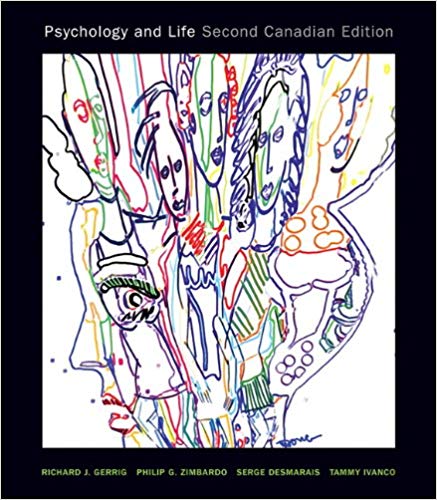




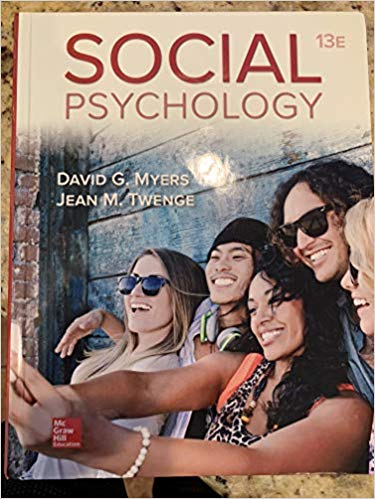
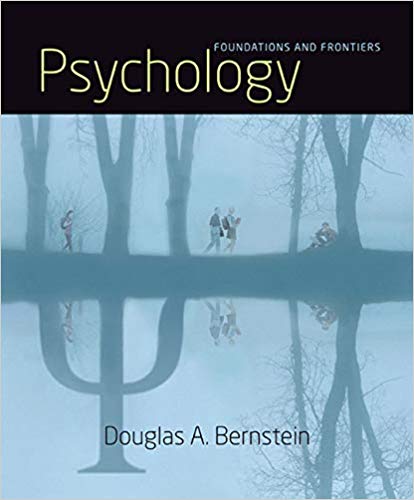

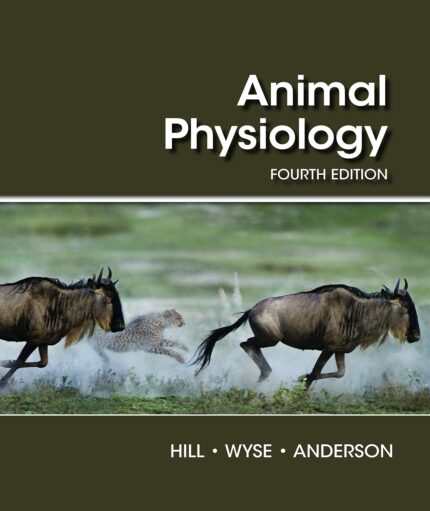
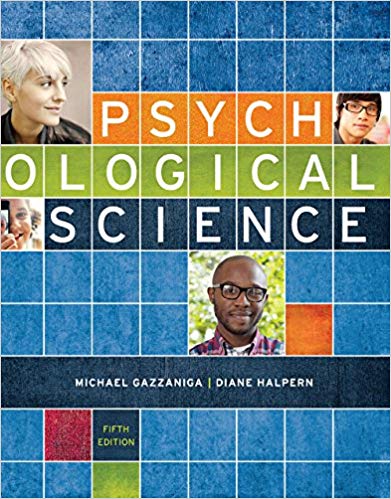


Reviews
There are no reviews yet.